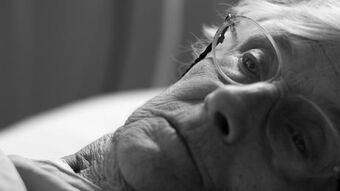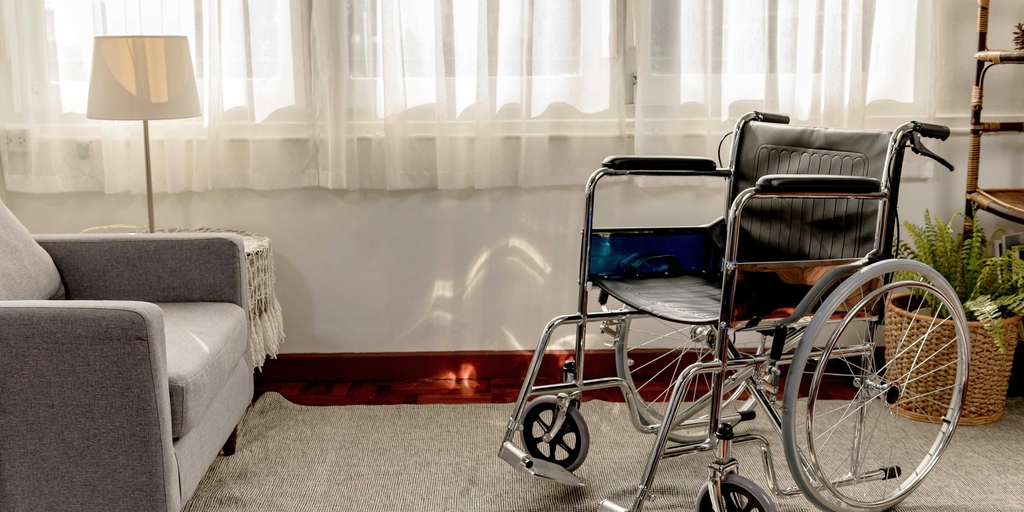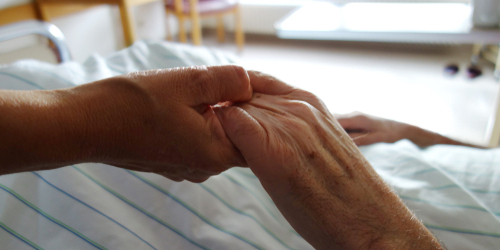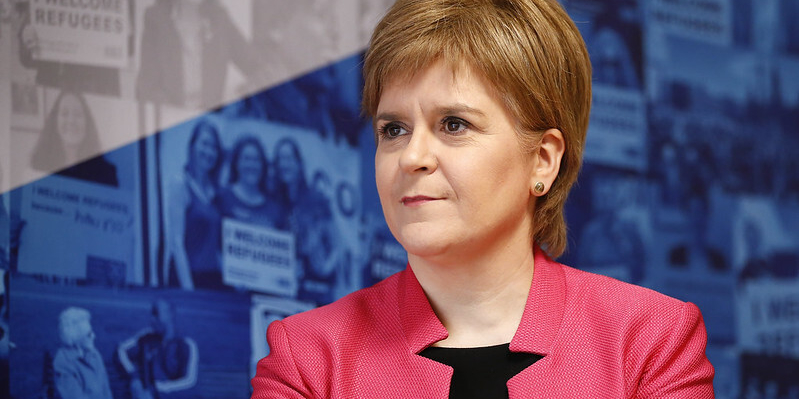UN Report on Persons with Disabilities Highlights Concerns Over Assisted Suicide
Assisted Suicide
A new reportpublished ahead of the Human Rights Council meeting has drawn attention to the fears of disabled persons if assisted suicide or euthanasia is legalised. The report of the Special Rapporteur on the right of persons with disabilities also mentions the need for serious consideration to be given to the issue of late-term abortions for babies with a disability.
Overall, despite the progress that has been made in recognising the rights of persons with disabilities, the report concludes that deeply rooted discrimination continues to be a major issue.
The Human Rights Council is an inter-governmental body within the United Nations which is responsible for promoting and protecting all human rights around the globe.
‘Ableism’
In her report, Catalina Devandas-Aguilar also discusses the impact of ‘ableism on medical and scientific practice’. Ableism refers to a value system that considers certain typical characteristics of body and mind as ‘essential for living a life of value. In this line of thinking, the experience of being disabled in unfortunate and devalues human life. It is assumed that the quality of life for a person with disabilities is actually very low. While prevalent in shaping medical ethics in ‘progressive’ countries, the report says it leads to ‘social prejudice, discrimination against and oppression of persons with disabilities, as it informs legislation, policies and practices.’The eugenics movement, which has done such damage over the centuries, grew out of ableism assumptions. While culture looks on with horror at the eugenics of the 1930s in Germany, for example, as a concept it is still very much alive and well today.
Abortion for Disabilities
One area where it is possible to see discrimination taking place is in the whole area of reproductive rights. As technology has improved allowing for earlier genetic screening, there has been a corresponding rise in parents choosing to not have a child with a disability: ‘the cumulative effect of individual choice, the ideal of the perfect offspring and ableism, among both clinicians and wider society, has resulted in a steady rise of prospective parents choosing not to have a child with a disability.’
In turn, this leads to concerns from a disability rights perspective that such practices reinforce and socially validate the idea that persons with disabilities should not have been born. This is in sharp contrast to the Christian worldview which teaches that a person’s value is intrinsic to who they are and not based on their strengths or weaknesses.
Euthanasia and Assisted Suicide
When it comes to euthanasia and assisted suicide, the report could not be clearer: ‘From a disability rights perspective, there is a grave concern that legalising euthanasia and assisted suicide could put at risk the lives of persons with disabilities.’ At the moment, assisted suicide is only legal in eight countries around the world, but some other nations are considering implementing similar laws. Just recently, MPs debated the issue at Westminster.
In the report’s section on assisted suicide, three specific concerns are flagged up as being the cornerstone of deep unease and opposition to assisted suicide from persons with disabilities. Firstly, the fear that a person with a ‘newly acquired impairment may opt for assisted dying based on prejudices, fears and low expectations of living with a disability, before even having the chance of coming to terms with and adapting to their new disability status.’ Secondly, a disabled person may end their own life due to a range of social factors including: ‘loneliness, social isolation and lack of access to quality support services’. Finally, disabled persons and especially elderly people with disabilities may be ‘vulnerable to explicit or implicit pressures arising from their context, including expectations from family members, financial pressures, cultural messages and even coercion.’
Policies should protect right to life
The report calls for the issue of disabilities and bioethics to be viewed through the lens of The Convention on the Rights of Persons with Disabilities which was adopted in 2006. People with disabilities are ‘subject to rights rather than objects of charity, protection of care’. That is to say, those with disabilities should be seen as absolutely equal with those who have no disabilities.
Strikingly, the report also adds that in order to champion the rights of persons with disabilities, States should enact measures such as: ‘awareness raising, adopting rights-based prevention policies; respecting the personal autonomy and integrity of persons with disabilities; taking concrete measures to protect their right to life.’
In developing recommendations on protecting the right to life, the report warns that: ‘access to appropriate palliative care, rights-based support, home care and other social measures must be guaranteed; decisions about assisted death should not be made because life has become unbearable through lack of choice and control.’
Endowed with inherent dignity
The report then ends by affirming the dignity of all persons with disabilities: ‘The lives of persons with disabilities are human lives and, consequently, endowed with inherent dignity.’ It goes on to say: ‘persons with disabilities bring talent, diversity and richness to their communities.’
On the last point, protecting their right to life, it is important to note that this should be one of the chief functions of the law. In the UK, the law fails to protect the right to life for unborn babies, which is tragic. Abortion, which involves the ending of a life, is allowed up to 24 weeks in most cases and right up to birth in cases of disability. However, the current law which prohibits any form of assisted suicide or euthanasia does protect the right to life.
Analysis
This report provides powerful evidence that legalising assisted suicide would harm the progress the UK has made when it comes to the rights of those with disabilities. Over the years that attempts have been made to legalise assisted suicide, it is striking that just about every major disability rights organisation has been opposed to the move. No matter how you look at it, legalising euthanasia or assisted suicide would fundamentally alter how society looks on those with terminal illness and how it cares for those with disabilities.
A better story to tell
From a Christian perspective, there is a better story than ableism. While the latter grounds a person’s value within the context of a societal construct and judges anyone outside those boundaries as ‘abnormal’, the Christian worldview understands human dignity to be entirely unrelated to whether a person is well-bodied or not. This powerful and persuasive approach allows every single person, regardless of background or disability to be treated equally. Indeed, the Christian understanding of the image of God, which is drawn from the opening chapter of the Bible, provides the best and only coherent framework from which true equality before the law can be based and achieved.
Christians should speak out
Here, then, is yet another reason why Christians should be engaged in politics and active in witnessing to MPs, Councillors, MSPs, MLAs and AM’s. This better story, with its emphasise on intrinsic value, not inherited value is a far better base from which is to treat persons with disabilities.
In a context where campaigners are desperately seeking to legalise assisted suicide, there is nothing more important than a determined and passionate defence of true human dignity. Christians must stand shoulder to shoulder with those from the disabled community in making loudly and proudly the argument for why assisted suicide should never be legalised in the UK.





Share story
UN Report on Persons with Disabilities Highlights Concerns Over Assisted Suicide